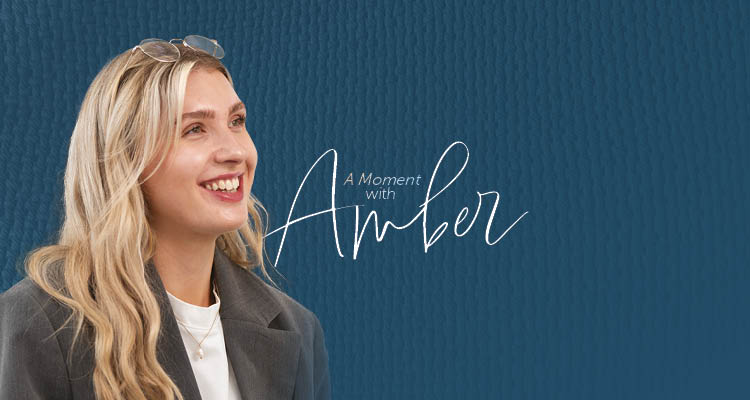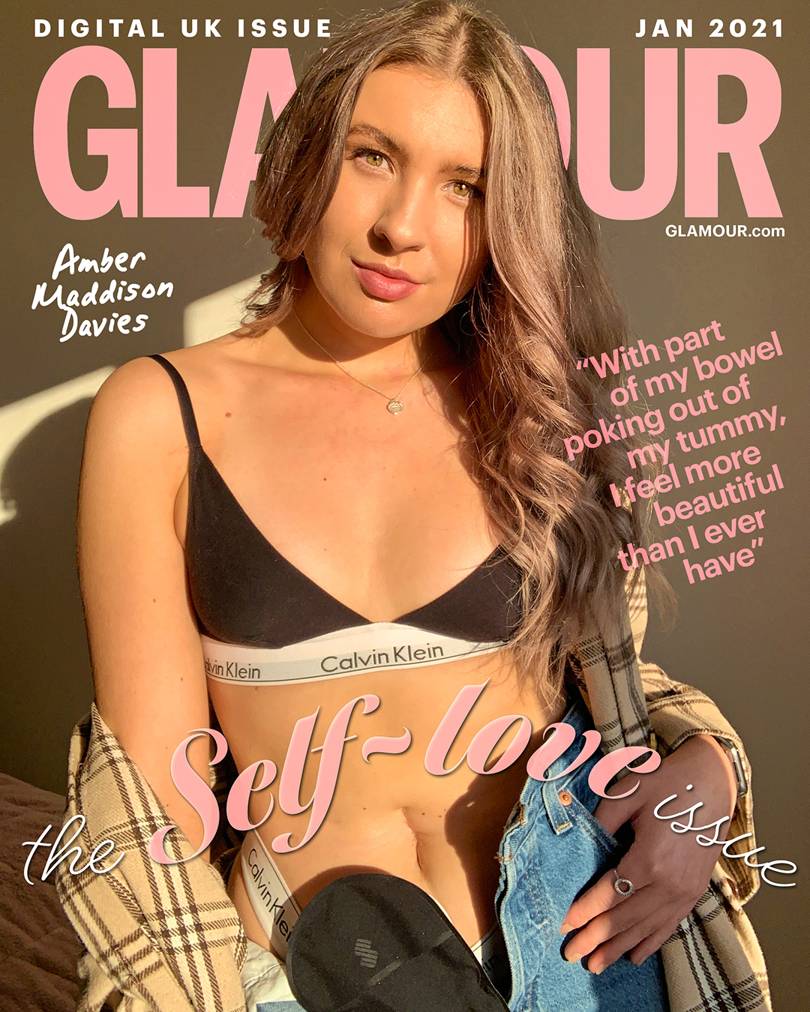Join the Salts Way Newsletter!
Stay up to date with the latest The Salts Way releases! Never miss a story by joining our mailing list.


Hi, I’m Amber, User Experience Lead at Salts Healthcare. I work alongside a multidisciplinary team of designers, engineers, marketers, clinicians, and people with stomas to develop products and services that put your needs at the centre. I’ve also lived with a stoma myself for nearly 10 years.
“A Moment with Amber” is a series created to support you by exploring key moments in your stoma journey. Each edition focuses on a specific stage — whether it’s preparing for surgery, adjusting to life post-operatively, or rediscovering confidence — and offers insights from both my personal experience and professional perspective.
Through research and conversations with the stoma community, we’ve identified five key stages that people often go through:
Understanding: Learning about stoma surgery and what it means for you.
Preparing: Getting physically and mentally ready for surgery.
Adjusting: Navigating the early days post-surgery.
Living: Finding a new normal and getting back to day-to-day life.
Thriving: Setting new goals, celebrating the wins and living life with a stoma.
Today, I want to focus on the first moment: Understanding.
This is the stage when you first learn that you may need a stoma, or perhaps you’ve just woken up with one after emergency surgery. It can be a moment filled with uncertainty, emotions and questions you don’t know how or might not have the confidence to ask.
You might be wondering:
Your support system including family, friends, or partners might also be learning alongside you, meaning that the people you’d normally turn to may not have the answers you need right away.
When I was in this phase, I found social media and online resources both a lifeline and a minefield. While connecting with others was incredibly valuable, I also came across a lot of misinformation. When you’re new to this, it can be hard to know what’s true for everyone or what’s just one person’s experience. That’s why it’s so important to find reliable sources that empower you with information applicable to you.
At this stage, you may face a mix of emotions. There may be a fear of the unknown, anxiety about body image or lifestyle changes, and worries about how this surgery might impact relationships, careers or confidence.

The emotions you feel at this stage can be complex but are completely valid - whether it’s fear, anxiety, sadness, hope or a whirlwind of them all through each hour and day. For me, there was a deep fear of the unknown and a lack of control: Although I knew a stoma was going to improve my health, I was worried about how it would change my life and how it would involve a different routine to the one I was used to and somewhat comfortable with, despite it being awful! Would I still feel like me? I was desperate for reassurance and for someone to tell me exactly how it was going to pan out for me personally.
If you feel this way, you are not alone. It’s okay to be scared, it’s okay to feel uncertain, and it’s okay to grieve the life you expected. But it’s also important to remember this is a new chapter, not the end.
Different people can feel ready to start understanding at different stages and while many of us experience feelings of denial, understanding is different to accepting — knowledge is often power.
For many of us, the idea of a stoma is a completely foreign concept at this stage. You might me asking:
What seems second nature to our nurses, is often a brand-new world for us. This is where clear, practical information can help you regain a sense of control. Simple things like seeing realistic images, watching demonstrations, or hearing from others can make this new reality feel less overwhelming.
One of the most helpful things for me was repetition. I needed to hear things more than once before they stuck. Don’t worry if it feels like a lot to take in at first, understanding takes time, give yourself grace.
Everyone’s journey is different. No two people are the same. We all have our own fears, hopes and priorities. When I was going through my initial surgery at 17, my biggest worries revolved around my appearance, education and socialising. Would my stoma mean giving up the life I had imagined for myself? If I were going through the experience again now, 10 years on, I imagine even my own worries would be quite different.
Maybe you’re thinking about:
Whatever your biggest worries are, your experience is unique, and your concerns are valid. There’s no one-size-fits-all approach but finding information and support tailored to you can make all the difference. Don’t be afraid to ask these questions, you’re not expected to know the answers.
When I had my first surgery, it was an emergency; I barely knew what a stoma was and felt like I had no time to prepare. My parents, who formed my support system, also had to quickly educate themselves so they could help me adjust.
Looking back, I wish I had been more informed about adult life with a stoma — for example, the impact it might have on my menstrual cycle. Absorption was another aspect I hadn’t understood; I had no idea that my medication for other conditions might not be absorbed properly with an ileostomy until I noticed my tablets passing through to my bag, whole. I wish I’d had the confidence to ask more questions and open up about some of these things.
If you’re in the Understanding phase now, my biggest advice is: seek reliable information, take it one step at a time, and connect with others.
I asked some of the wonderful stoma community what they wished they had understood earlier in their journey. Here’s what they said:
“I wish that, as a carer of someone with a stoma, I had more information to help understand caring for and supporting someone”
“I wish someone had taken extra time to help me understand how to change my bag myself”
“I wish that I had more information to support with understanding the mental aspect and wrapping your head around what feels like a new life to start navigating”
“I wish I’d taken more time to understand the importance of where my stoma was sited”
“I wish someone had taken extra time to help me understand how to order more supplies”
“I wish I’d been shown realistic images/videos of what to expect afterwards — I was not prepared at all for the sight of mine, it wasn’t like the photos of the ‘perfect’ ones!”
“I wish I’d known that there’s a community out there so you can see what different bags actually look like on different people”
“I wish I’d received age-appropriate, tailored advice and content”
“I wish I understood more about the different products available — there’s so much out there it was difficult to know what’s what”
“I wish I understood more about the risk of hernias and what to do/not to do to prevent one before it happened”
“I wish I understood more about some of the skin issues that could occur”
“I wish I understood more about the possibility of leaks and how to overcome them rather than accept them as normal”
Does any of this resonate with you? If so, you’re not alone, there are resources and people ready to help.
The nurses who helped me most were the ones who listened to my fears, validated my feelings, understood my personal goals and empowered me with the knowledge I needed to move forward.
The Understanding phase can feel overwhelming. It’s okay to have questions, it’s okay to feel uncertain, and it’s okay to take your time. You are not alone.
- Amber
Stay up to date with the latest The Salts Way releases! Never miss a story by joining our mailing list.